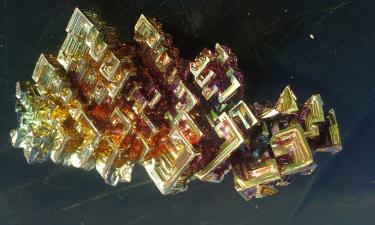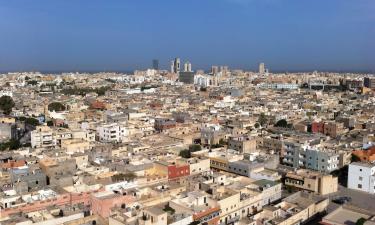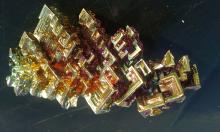A Series on Russia's Elections
While it appears that the Kremlin has just about locked up the Duma December elections and sealed the outcome of the presidential elections next spring, it is still worthwhile to observe the election season as it may tell us something about how Russian political culture is changing (or isn't) and what the democratic process means under Putin.
To date, the Duma campaign has been dull, to say the least. Every party touts some form of "patriotism" and either supports the status quo (pro-Kremlin) or demands (undefined) political change (those parties not supported by the Kremlin). This, of course, is to be expected.
Not one party has been able to define a policy platform, though most have tried very hard to promote the leading personalities who head each party's electoral list. Putin is seen and portrayed as above it all, effortlessly campaigning for his favorites.
The highlight of the campaign for me thus far was to bump into Vladimir Zhirinovsky during the festivities celebrating Moscow's birthday. Zhirinovsky is a UT reader (honest) and he told me while he forced an autographed copy of LDPR's campaign manifesto into my hands that he was "a friend of the American people, but no friend of American occupiers." Seconds later, his group of bodyguards gave me to the look that suggested I make myself scarce.
Thus far, only two issues concerning this election season warrant much commentary. First is Glazyev and the second surrounds how the media has been allowed to cover elections.
Sergei Glazyev's gambit to build a new "leftist-patriotic" bloc is the only new attempt to redefine Russia's electorate since the last Duma election in 1999. Whether Glazyev's efforts are indirectly supported by the Kremlin or a calculated ploy to completely rearrange the current leadership of the KPRF is of little concern at this point, the fact that a non-communist socialist bloc may be in the making is. At present, it is unclear if Glazyev's cobbled together block can pass the five percent election threshold in December, but it is a wake up call for the communists that they can no longer expect to control how the left is defined in Russian politics. It does matter if you like or dislike Glazyev or what he says. What is important is the fact that he challenging a party system that has become very comfortable with the status quo - the same status quo that continues to keep a significant part of the electorate politically homeless. Glazyev is the only wildcard when it comes to this Duma election. If he and his block of parties will receive equal attention in the media is an open question, though.
How the media has been told to cover this election is nothing less than pathetic. In a nutshell, it is next to impossible to differentiate what "editorializing" and "coverage" mean under the present law on the media and campaign reporting. On the face of it, the authorities appear to want to impede the growth of an open and free media and the establishment of meaningful democracy on one blow.
The new rules on how the media is allowed cover election campaigns are a defensive tactic on part of the authorities, with the hope that the media will not be able understand the news rule and thus inhibit any meaningful coverage. The new rules are having an impact as well. While some media outlets are playing cat and mouse with the Electoral Commission on how to interpret the letter of the law, other news outlets are simply not covering the elections. Compared to the last Duma campaign, this year's coverage is overly tame and creates copy that is simply unreadable.
My understanding of this election season is very much like the short encounter I had with Zhirinovsky on Moscow’s main avenue called Tverskaya: the candidate is known, has printed campaign material intended to sway me, willing to work the crowd, but don't ask any questions, and if you even try, these guys (bodyguards) answer only to me.
The way things are going it would seem that this election season is a combination of intended intimidation and hoped for apathy. The authorities appear to have little interest in democracy or a free media and hope that the electorate will go along with this approach. Sadly, this approach is not receiving much resistance.
Peter Lavelle
Subscribe to Pravda.Ru Telegram channel, Facebook, RSS!





